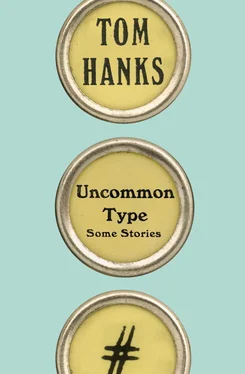The problem was that she had no typewriter, nor did Rebecca. When Sue asked Shelley if she had a machine she could use, she didn’t say no but did tell her, “They rent them at the library.” That’s why Sue Gliebe was umbrellaless, navigating eastward on Forty-Second Street, passing a stoned-looking teenager who had pulled his penis out of his pants and was pissing as he stumbled along. Not a single person made note of the sight.
The exact moment Sue discovered that the Main Library was closed on Mondays, a flash of lightning bleached the scraped sky of Mid-Manhattan. She stood at the side entrance to the landmark building, its door locked, unable to comprehend the meaning of those three simple words: Closed on Mondays . Just as a roll of thunder outblared the honking horns of traffic, she lost the battle against tears, the collective disappointments simply too much: New York City roommates were not friendly soul sisters; Central Park was a place of naked trees, unusable benches, and spent rubbers; windows had security gates that locked rapists out and victims in; no cute sailors were waiting to meet a girl and get a kiss. No. In New York City real estate parlors took your money and lied to you, drug addicts relieved themselves in plain sight, and the Public Library was closed on Mondays.
Sue was crying, right there on Forty-Second Street between Fifth Avenue and Sixth or, according to the map, the Avenue of the Americas. Sobbing, gasping, tears, the big show. As many people as had made note of the stoned guy’s penis stopped to help or even look at the girl who was having so terrible a day that she was weeping aloud in public. Until…
“Sue Gliebe!” a man’s voice called out. “You little titmouse!”
Bob Roy was the only man in the world who called her a titmouse. Bob Roy had been the general business manager of the ACLO but lived in New York City. He was a Theater Professional contracted for the season and a homosexual. He had once been an actor on Broadway and he’d done commercials in the 1960s but went into theater management for steady work. Running the Civic Light Opera out west was a summer camp for him—he did it every year—and took his duties a little less seriously than he did laughing and gossiping. Bob Roy seemed to know everything about the Theater, and if you worked in his company, if he signed your paychecks, he either loved you or loathed you. Your treatment completely depended on which way his judgmental wind blew.
He loved Sue Gliebe from the moment he saw her at a dress rehearsal for Brigadoon in the summer of ’76. He delighted in her youth, her halo of honey-blond hair, her clear eyes full of good nature, and her conscientious work ethic. He adored her for showing up on time, knowing her lines, and having ideas for her onstage business. He was fascinated by her tanned body and firm boobs and her lack of self-consciousness, ego, and spite. Every straight man—all seven of them—at the ACLO wanted to fuck her, but she wasn’t that way. Most actresses craved such adoration and demanded the largest dressing room, but Sue Gliebe wanted nothing more than to be onstage. After three seasons, she had not changed a whit and Bob Roy loved her all the more.
He was in a taxi at the curb, the window rolled down with the rain falling between them. “Get in this cab right now!” he ordered.
He slid over to make room for her and the cab moved along. “I’d have bet on seeing Eva Gabor on Forty-Second Street before you. Are you crying ?”
“No. Yes. Oh, Bobby !”
Sue explained: She had been in the city for two months, sleeping on Rebecca’s couch. Her savings were running out. No agents would give her the time of day. She saw a man pissing in the street. She was crying now, in particular, because the only movies that told the truth about New York City were about needle parks and taxi drivers on killing sprees. Bob Roy laughed out loud! “You’ve been in Noo Yawk for two months and haven’t called me? Naughty, Sue. Naughty, naughty.”
“I didn’t have your number.”
“What were you doing in Slime Square?”
“Going to the library.”
“To check out the latest Nancy Drew mystery? I’d have guessed you’d read them all by now.”
“They have typewriters. I need to create a new résumé.”
“Titmouse,” Bob said. “Start with a new you first. How about a cup of tea or hot Postum? Whatever soothed Baby Sue growing up in Indian Country.”
The taxi took them to Bob’s apartment downtown—to a terrible neighborhood where all the buildings were six-story tenements and the sidewalks were lined with beaten-up trash cans. He gave the driver six dollars and asked for no change. She followed him out into the rain, up the stoop, through the heavy main door, then four flights up a narrow, zigzagging stairway to apartment 4D. He needed keys for three different locks on the door.
From the dingy, dimly lit hallway, the walls more dirty gray than the original green, the floor a maze of broken and mismatched tiles, Sue stepped into a haven that smelled of candles and lemon-scented dish soap, a cabinet of curiosities, one of which was the bathtub smack dab in the middle of the small kitchen. Bob Roy’s railroad flat was four tight, connected rooms, each stuffed with koombies, knickknacks, doodads, furniture pieces of any style, shelves, books, photos in frames, trophies bought from flea markets, old records, small lamps, and calendars from decades before. “I know,” he said. “It looks like I sell magic potions in here, like I’m an animated badger from a Disney cartoon.” He lit a burner on the stove with a huge kitchen match, then filled a shiny, Olde English–style kettle with water from the tap. As he prepared cups on a tray he said, “Tea in minutes, titmouse. Make a home for yourself.”
The room off the kitchen was really a hallway, a narrow passage through treasures and castoffs. The sitting room featured three large chairs of different eras, one a La-Z-Boy, each covered with a colorful throw of some kind. A circular coffee table, nearly too large for the square space, was covered with stacks of books, a cigar box full of sharpened pencils, a vase with an artificial orchid, and two assembled toy bugs from the Cootie game, posed like they were either fighting or mating. The rain was still coming down hard outside, but window curtains that could have come from an antebellum mansion muffled the roar of the storm. The last room in the railroad flat was Bob’s bedroom, most of it taken up by a four-poster bed.
“I can never move out of this place, it would take me years to pack,” Bob called from the kitchen, only eight feet away. “Turn on the radio, would you?”
“If I can find it,” Sue said and heard his laugh in response. She had to focus out so much clutter, like she was in a Lost and Found Forgotten by Time, until she saw it. The radio was a blond-wood-paneled box as big as an ice chest, with circular knobs like thick poker chips and four lines of numbers for different frequencies. She turned the ON/OFF VOLUME until its satisfying kock was so loud Bob heard it from the kitchen.
“The tubes have to warm up,” he said.
“Does this get shortwave from the Soviet Union?”
“How’d you know?”
“My grandma had a radio like this.”
“So did mine! In fact, that’s it.”
Bob came in with a tray on which were two cups, a pitcher of milk, a sugar bowl with a painted honeybee on the lid, and a plate stacked with Oreo cookies. “Feel free to take off your coat, unless you like being damp.” Orchestral music came from the radio just as the teakettle sounded its harmonic toot .
Sweet tea with milk, three Oreos, and Bob Roy’s snug and cozy flat helped Sue breathe deeply for the first time in months. She let out a sigh as big as a cresting wave and leaned back into a chair so soft it put the z in cozy .
Читать дальше











